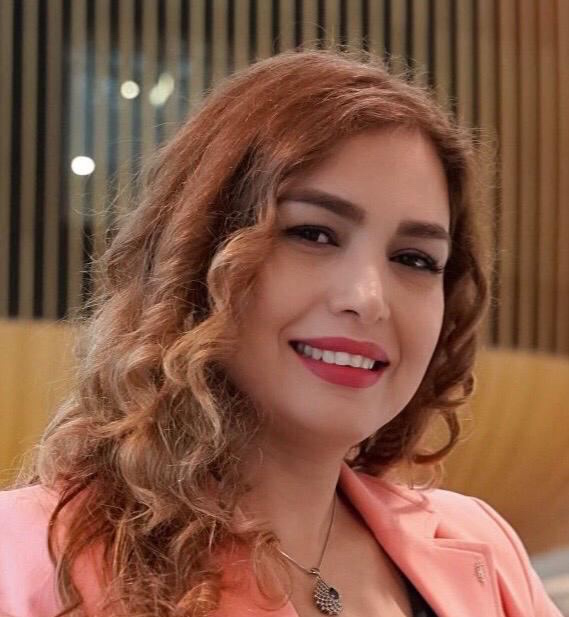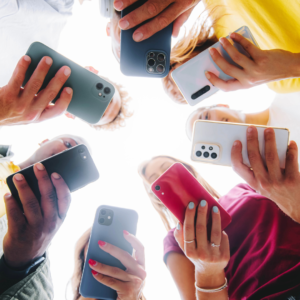In today’s world, where technology and social media play a central role in the lives of children and teens, Dr. Maryam R. Aliabadi is on a mission to help families navigate the online world safely. Maryam is the CEO and Co-Founder of Kids Shield, a company that provides cybersecurity education for youth. She brings a unique blend of innovation and empathy to the issue of digital well-being.
In this interview, Maryam shares about Kids Shield’s mission, the role of AI in combatting cyberbullying, and how parents can help their children develop healthy relationships with technology.
Describe Kids’ Shield’s mission. How do your services address parents’ concerns about social media and the effects of technology on young people’s well-being?
 Kids Shield’s mission is to empower children and families through cyber safety education that is proactive, inclusive, and grounded in innovation. We recognize the growing concerns parents have about the impact of technology and social media on young minds. Our programs provide families with practical tools, engaging content, and a safe environment for learning. Through our educational workshops, game-based learning modules, and anti-cyberbullying tools, we help children build digital resilience while giving parents peace of mind.
Kids Shield’s mission is to empower children and families through cyber safety education that is proactive, inclusive, and grounded in innovation. We recognize the growing concerns parents have about the impact of technology and social media on young minds. Our programs provide families with practical tools, engaging content, and a safe environment for learning. Through our educational workshops, game-based learning modules, and anti-cyberbullying tools, we help children build digital resilience while giving parents peace of mind.
Can you share insights on how your AntiBully System leverages AI technology to address cyberbullying, and how it supports parents in promoting positive online interactions?
Our AntiBully System uses AI to monitor patterns in language, sentiment, and online interactions to detect early signs of cyberbullying. The system flags potential harmful content and provides real-time alerts, guidance, and supportive interventions tailored for both children and parents. This empowers parents to engage in meaningful conversations with their children about online behavior and helps enhance a more respectful and supportive digital culture. The AI continuously learns and adapts, making it an effective and evolving ally in promoting digital well-being.
How does Kids Shield’s game-based learning approach teach children the essential skills for navigating technology safely?
Children learn best when they’re engaged—and what better way to do that than through games? Our educational games, like CyberGuardians, are designed to be both fun and informative, teaching children about password security, phishing scams, secure online behavior, and empathy. Each level is tied to real-life scenarios, helping children practice decision-making in a safe, simulated environment. This experiential learning helps them internalize digital safety principles in a way that’s age-appropriate and memorable.
In your experience, what are some common misconceptions that parents and caregivers have about healthy technology use for young people?
One common misconception is that limiting screen time alone will protect children from digital risks. While boundaries are important, open communication and digital literacy are far more effective. Another myth is that children naturally know how to stay safe online because they’re tech-savvy—when in reality, they have yet to develop the critical thinking skills needed to navigate complex online environments. Finally, some parents assume cyberbullying is only about obvious threats, missing the subtle forms it can take, like exclusion or passive-aggressive comments.
What strategies would you recommend for parents and caregivers to discuss healthy technology use with youth who are just starting to use social media, especially regarding cyberbullying and mental well-being?
 Start with curiosity, not control. Ask your child what they enjoy online and listen without judgment. Set shared guidelines for respectful behavior and screen time and explain why they matter. Use real examples to talk about kindness, consent, and standing up to bullying. Encourage your child to come to you if something feels wrong—and reinforce that seeking help is a strength, not a weakness. Most importantly, be a role model: children learn a lot by watching how adults use technology and handle conflict.
Start with curiosity, not control. Ask your child what they enjoy online and listen without judgment. Set shared guidelines for respectful behavior and screen time and explain why they matter. Use real examples to talk about kindness, consent, and standing up to bullying. Encourage your child to come to you if something feels wrong—and reinforce that seeking help is a strength, not a weakness. Most importantly, be a role model: children learn a lot by watching how adults use technology and handle conflict.
Interested in learning more about Kids Shield? Check out their website and follow them on social media:
Website: www.kidsshield.ca
LinkedIn: https://www.linkedin.com/company/31465967/admin/dashboard/
Instagram: https://www.instagram.com/kids_shield
Facebook: https://www.facebook.com/KidsShieldServices
Email: [email protected]
Author: Dr. Maryam Raiyat Aliabadi
Dr. Maryam Raiyat Aliabadi is a teaching faculty member in the Faculty of Computer Science at the University of British Columbia (UBC) and British Columbia Institute of Technology (BCIT), Vancouver, Canada. She earned her B.Sc. degree from Shahid Beheshti University (SBU) in Tehran, Iran, and her M.Sc. degree in Electrical and Computer Engineering from UBC. Maryam completed her PhD studies jointly at SBU and UBC, focusing on applied machine learning for Cyber-Physical Systems (CPS) Security, followed by two postdoctoral fellowships further advancing her research and teaching expertise in cybersecurity. With over 10 years of international industrial experience as an R&D engineer and more than four years of teaching experience at institutions including UBC and New York Tech – Vancouver, Maryam combines academic rigor with practical insight. Passionate about cybersecurity education, she is the founder of innovative AI-driven initiatives aimed at introducing children to cybersecurity concepts through gamification, bridging education and digital safety in unique ways







